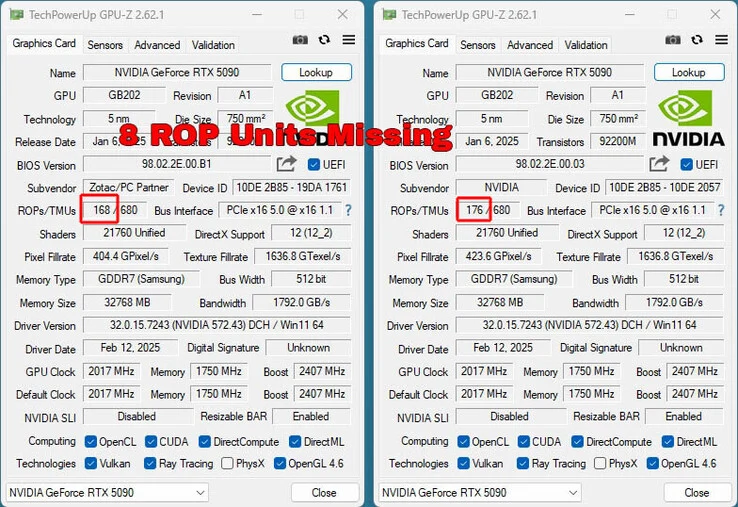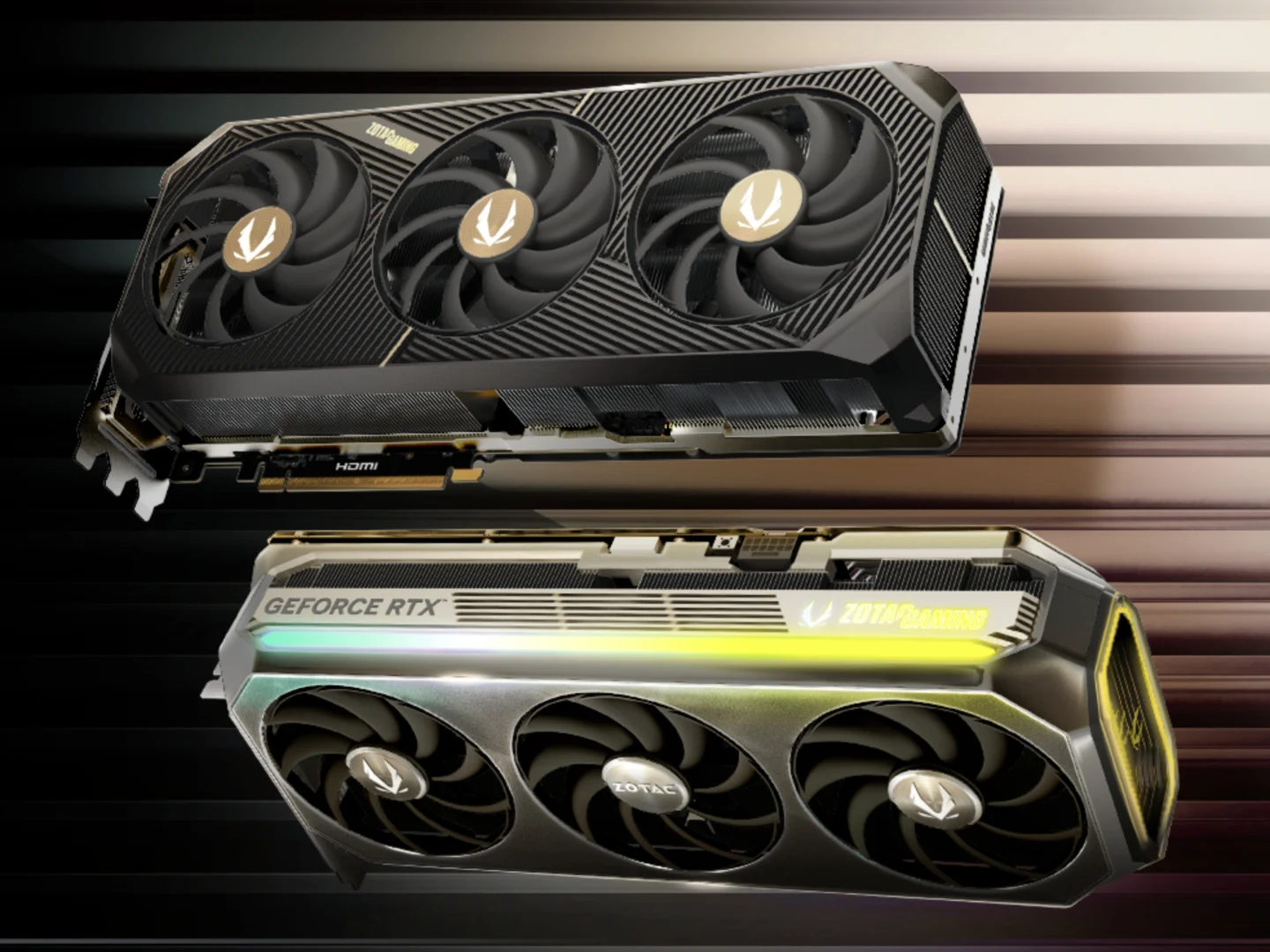Key Takeaways
1. Nvidia has started shipping early versions of the GeForce RTX 50 series graphics cards, specifically for desktop use.
2. Some GeForce RTX 5090 cards are arriving with 8 fewer Raster Operating Units (ROPs) than advertised, impacting performance.
3. The reduced number of ROPs (168 instead of 176) results in a noticeable performance dip, with a reported 4.5% decrease in performance.
4. Despite the performance decline, affected RTX 5090 cards still outperform previous models, including the RTX 5080.
5. The root cause of the ROPs issue remains unclear, with speculation about defective GB202 GPUs but no confirmation yet.
Nvidia and its board partners have started to ship the early versions of GeForce RTX 50 series graphics cards, currently only for desktop use. The supply of the GeForce RTX 5090 is expected to get better in the next few weeks. However, it appears that some of these cards are arriving with fewer Raster Operating Units (ROPs) than what was advertised.
The Role of ROPs in Performance
For a bit of background, ROPs in Nvidia GPUs are essential for tasks like anti-aliasing and color compression. This means that having a lower number of ROPs than anticipated could affect the overall performance. TechPowerUp and a user known as Wuxi Gamer have noticed this performance dip with the Zotac GeForce RTX 5090 Solid card.
Reported Issues with Units
Some reports indicate that certain cards have 168 ROPs, which is 8 less than what a GeForce RTX 5090 is supposed to have. However, ComputerBase has pointed out that their Zotac GeForce RTX 5090 Solid does not show this problem. The main challenge is that there’s no way to identify which specific units are impacted without turning them on. The 4.5% reduction in ROPs leads to a noticeable drop in performance as well.
Performance Comparisons
TechPowerUp has mentioned that their Zotac GeForce RTX 5090 Solid performed approximately 5.6% worse than the GeForce RTX 5090 Founders Edition when tested in Elden Ring at 4K resolution, even after redoing the tests. Despite this performance decline, the affected RTX 5090 cards still outperform all of Nvidia’s previous models, including the GeForce RTX 5080, which currently retails for $2,399.99 on Amazon. Unfortunately, it’s still unclear what the root cause of the issue is, whether it’s due to hardware or software. Some sources suggest that it might be linked to defective GB202 GPUs, but this has yet to be verified.
Source:
Link



Leave a Reply